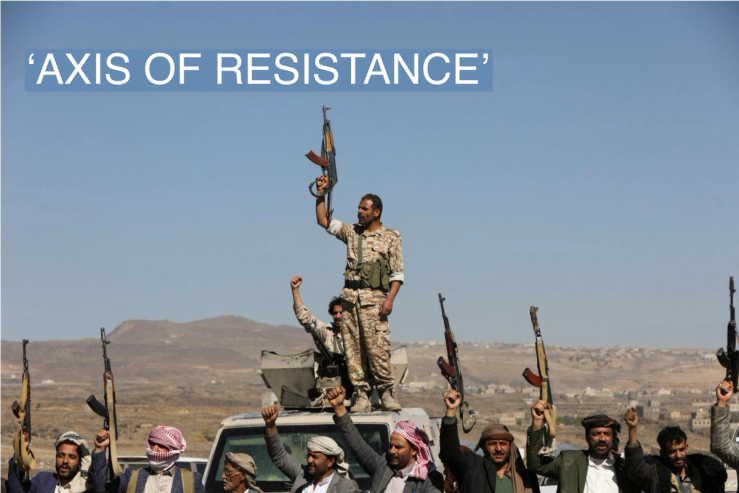The News
Iran said it carried out strikes in Iraq and Syria, claiming it struck Israeli “espionage centers” in retaliation for attacks by Israel, in a key escalation of the Israel-Hamas war.
Tehran has also deployed forces to Yemen, where U.S.-led strikes targeted the Iran-backed Houthi rebels last week. The Islamic Revolutionary Guard Corps are also playing a direct role in attacks by the Houthis in the Red Sea.
SIGNALS
Houthi attacks part of Iran’s proxy war against US
The Houthis have launched further attacks on shipping vessels in the Red Sea including a strike on a U.S.-owned commercial ship on Monday. Houthi rebels make up part of Iran’s so-called “axis of resistance,” a network of anti-Western militias. As hostilities continue, the U.S. and Iran appear to be locking into an escalatory spiral, the International Crisis Group noted. That comes with major risks. “Tehran and Washington would be wise to look for opportunities to defuse tensions. Right now, that may be politically impossible,” the group wrote in a recent report, adding that “as soon as there is an opening to resume the quiet, indirect diplomacy that led to the pre-Gaza lull, both sides should seize it.”
Mideast war has arrived
By some metrics, a regional war in the Middle East has already arrived, one analyst argued, saying a “low-intensity regional war” has been ongoing for decades. In recent years, Iran has expanded its scope in the region to fill power vacuums with its proxies, Christopher P. Costa, a former U.S. intelligence officer, wrote in The Hill. “Hamas’s terrorist attacks have already opened a Pandora’s box for unifying an axis against Israel,” he noted, so the Biden administration must now “reboot a counterterrorism strategy that takes into account these regional dynamics to confront an Iran-directed axis that’s much more expansive” than it was in years past.
Iran may have miscalculated US retaliation
Tehran might have believed that Washington would have been more restrained in targeting the Houthis, Al-Monitor noted this weekend. Iran has much to lose from a failed standoff with the U.S.: Any miscalculation could “prove costly for a government already grappling with a host of economic maladies and facing a crisis of legitimacy,” the news website’s Tehran correspondent wrote. Iranian hardliners have encouraged their proxies to act, and state-run media have heralded the Houthis as “game changers” in the Israel-Hamas war. “Should the [U.S] coalition strikes continue in the days to come, the Islamic Republic could find itself in a tighter corner,” the correspondent added.




